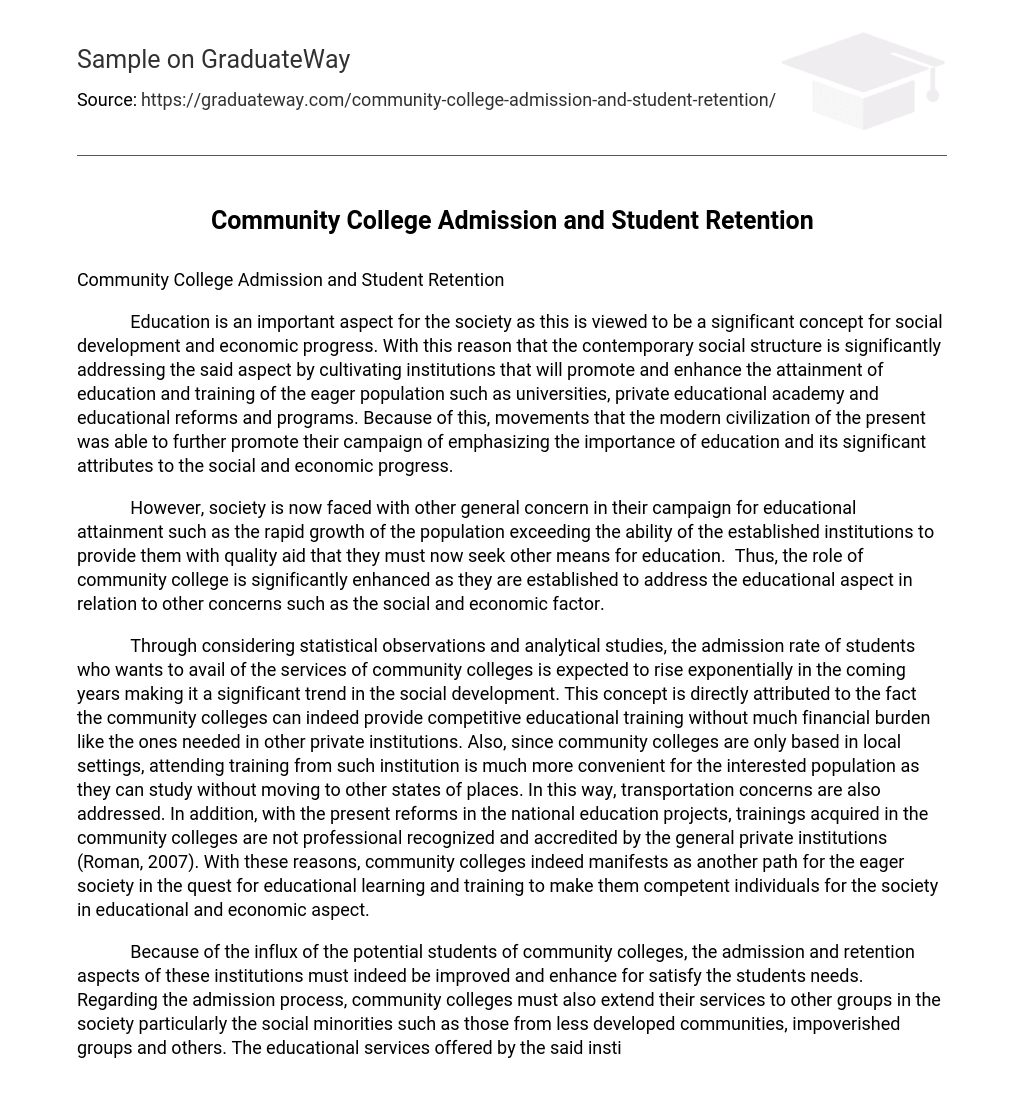Education is an important aspect for society as it is viewed as a significant concept for social development and economic progress. The contemporary social structure is significantly addressing this aspect by cultivating institutions that promote and enhance the attainment of education and training for the eager population, such as universities, private educational academies, and educational reforms and programs. Because of this, modern civilization has been able to further promote their campaign emphasizing the importance of education and its significant attributes to social and economic progress.
However, society is now faced with another general concern in their campaign for educational attainment: the rapid growth of the population exceeds the ability of established institutions to provide quality aid. As a result, people must now seek other means for education. Thus, the role of community colleges is significantly enhanced as they are established to address not only educational aspects but also social and economic factors.
Through statistical observations and analytical studies, it is expected that the admission rate of students who want to avail of community college services will rise exponentially in the coming years. This makes it a significant trend in social development. The concept is attributed to the fact that community colleges can provide competitive educational training without much financial burden compared to private institutions. Community colleges are also based locally, making attending training from such institutions more convenient for interested populations as they can study without moving to other states or places, thus addressing transportation concerns.
In addition, with present reforms in national education projects, trainings acquired in community colleges are professionally recognized and accredited by general private institutions (Roman, 2007). Therefore, community colleges manifest as another path for eager society members seeking educational learning and training to become competent individuals for society’s educational and economic aspects.
Because of the influx of potential students in community colleges, admission and retention aspects must be improved to satisfy their needs. Community colleges should extend their services to other groups in society, particularly social minorities from less developed and impoverished communities. The educational services offered by these institutions are significant for these people as they provide an opportunity to alleviate themselves from their current condition, making them more competent and productive economically (Roman, 2007).
In terms of retention aspect, the current student population is viewed as a measurement of educational effectiveness and revenue prospect. Therefore, community colleges must prioritize administration and curriculum development that urges students to finish their courses and chosen educational programs for maximum benefit on their part (Roman, 2007). With these approaches duly applied, community colleges can significantly improve their services and standards to deliver competent educational training for the eager community.
Community colleges are significant institutions that promote the expansion and revolution of education, developing competent and productive individuals for social and economic aspects. Therefore, they require attention and support from both the social community and government to efficiently maximize their purpose for society. With these changes, eager individuals in society can access quality education and training, enabling them to become productive members of their respective social institutions.
Bibliography
- Roman, Marcia A. (2007). Community College Admission and Student Retention.” Journal of College Admission.





